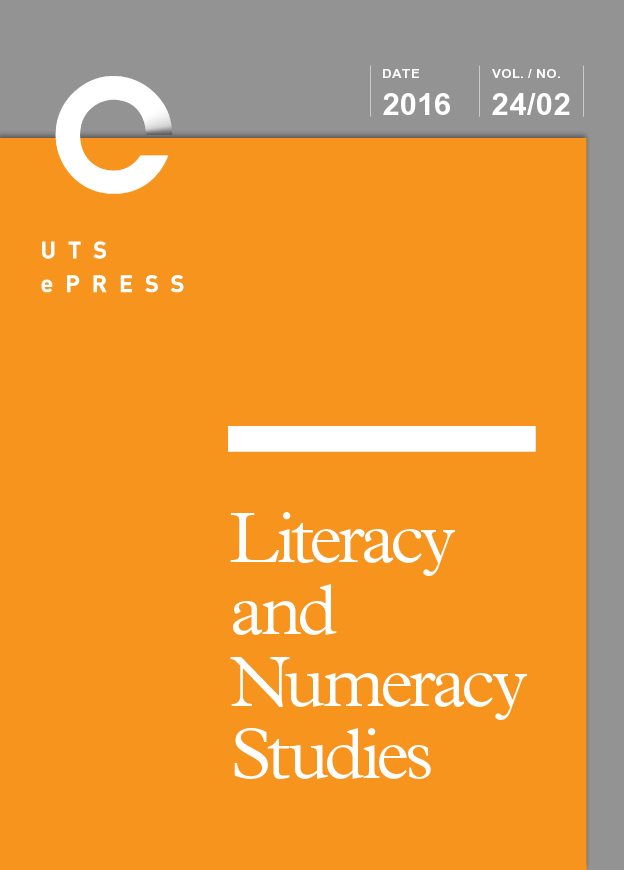Adult reading teachers’ beliefs about how less-skilled adult readers can be taught to read.
Main Article Content
Abstract
Despite large-scale interventions, significant numbers of adults worldwide continue to have problems with basic literacy, in particular in the area of reading. To be effective, adult reading teachers need expert knowledge at practitioner level. However, practices in adult reading education vary widely, often reflecting the individual beliefs of each teacher about how an adult can learn to read. In this study, phenomenographic analysis was used to identify categories of approaches to teaching adult reading, used by a group of 60 teachers in Western Australia and New Zealand. Four approaches were identified: reassurance, task-based, theory-based and responsive. It is argued that for teachers to become effective and consistent in responding to learner needs, they must understand their own beliefs and the consequences of these. The identification of different approaches in adult reading education is an important step in this process.
Article Details
Issue
Section
Authors who publish with this journal agree to the following terms:
a) Authors retain copyright and grant the journal right of first publication with the work simultaneously licensed under a Creative Commons Attribution License that allows others to share and adapt the work with an acknowledgement of the work's authorship and initial publication in this journal.
b) Authors are able to enter into separate, additional contractual arrangements for the non-exclusive distribution of the journal's published version of the work (e.g., post it to an institutional repository or publish it in a book), with an acknowledgement of its initial publication in this journal.
c) Authors are permitted and encouraged to post their work online (e.g., in institutional repositories or on their website) prior to and during the submission process, as it can lead to productive exchanges, as well as earlier and greater citation of published work (See The Open Access Citation Advantage Service). Where authors include such a work in an institutional repository or on their website (ie. a copy of a work which has been published in a UTS ePRESS journal, or a pre-print or post-print version of that work), we request that they include a statement that acknowledges the UTS ePRESS publication including the name of the journal, the volume number and a web-link to the journal item.
d) Authors should be aware that the Creative Commons Attribution (CC-BY) License permits readers to share (copy and redistribute the work in any medium or format) and adapt (remix, transform, and build upon the work) for any purpose, even commercially, provided they also give appropriate credit to the work, provide a link to the license, and indicate if changes were made. They may do these things in any reasonable manner, but not in any way that suggests you or your publisher endorses their use.
